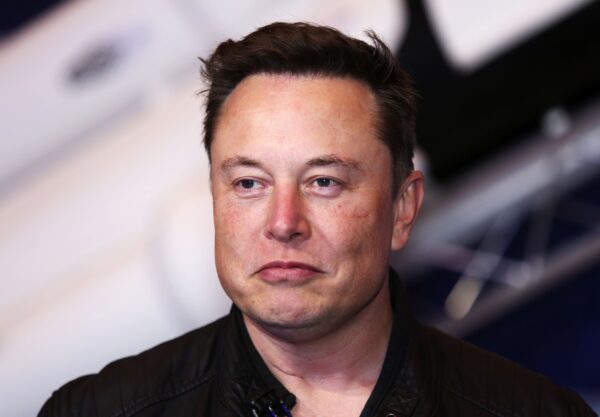By Devon Pendleton
For the vast majority of the world’s wealthiest people, 2022 was a year to forget.
It’s not just the money that was lost, though it was staggering — almost $1.4 trillion was wiped from the fortunes of the richest 500 alone, according to the Bloomberg Billionaires Index. Plenty of the pain, it turns out, was self-inflicted: The alleged fraud by onetime crypto wunderkind Sam Bankman-Fried; the devastating war waged by Russia on Ukraine that spurred crippling sanctions on its business titans; and, of course, the antics of Elon Musk, the new owner of Twitter who’s worth $138 billion less than he was on Jan. 1.

Combined with a backdrop of widespread inflation and aggressive central bank tightening, the year was a dramatic comedown for a group of billionaires whose fortunes swelled to unfathomable heights in the Covid era of easy money. In most cases, the bigger the rise, the more dramatic the fall: Musk, Jeff Bezos, Changpeng Zhao and Mark Zuckerberg alone saw some $392 billion erased from their cumulative net worth.
It wasn’t all bad news for the billionaire class, though. India’s Gautam Adani surpassed Bill Gates and Warren Buffett on the wealth index, while some of the world’s richest families, like the Kochs and the Mars clan, also added to their fortunes. Sports franchises only became more valuable, growing increasingly unobtainable for anyone outside the top 0.0001%.
Here’s a month-by-month review of the data and stories that defined a tumultuous year for billionaires.
January: Warning Shots
Musk, the world’s richest person at the time, loses $25.8 billion on Jan. 27 after Tesla Inc. warns about supply challenges. It’s the fourth-steepest one-day fall in the history of the Bloomberg wealth index and foreshadows a rocky year ahead for Musk, both personally and financially.
February: Oligarch Wealth Obliterated
Russia’s richest people collectively lose $46.6 billion on Feb. 24, the day Vladimir Putin orders his army to invade Ukraine. In short order, authorities in the European Union, UK and US target Russia’s “oligarchs” and their companies with sanctions that make it next-to-impossible for the business tycoons to keep control of their assets in the West. Superyachts are grounded, London’s ultra-luxury property market braces for a slowdown and Roman Abramovich announces he’s selling Chelsea FC of the Premier League. The wealthiest Russians go on to lose another $47 billion over the course of 2022 as the war grinds on.
March: China’s Fortunes Crushed
China’s markets go from bad to worse, erasing $64.6 billion from the fortunes of the country’s wealthiest people on March 14. They lose another $164 billion in 2022 as strenuous Covid-containment efforts, a buckling property market, heightened scrutiny of the tech industry and trade tensions with the US drag on the world’s second-largest economy. That, combined with President Xi Jinping’s populist rhetoric, has more affluent Chinese plotting to get themselves — and their money — out of the country.
April: Musk’s Twitter Gambit
Soon after revealing a 9.1% stake in Twitter, Musk offers to buy the company outright on April 14 at a $44 billion valuation. It’s a steep price, even for him. To finance the deal, he initially plans to borrow billions, leverage more of his Tesla shares and pony up $21 billion in cash, which analysts correctly predict will require offloading Tesla stock. Markets deteriorate in the coming months and Musk tries to devise an escape route, kicking off a months-long legal wrangle with Twitter. By the time the deal is completed in October, Musk’s net worth is $39 billion lower than when he made his initial offer.
May: Boehly Buys Chelsea
A group helmed by finance billionaire Todd Boehly and Clearlake Capital clinches the £4.25 billion ($5.25 billion) winning bid for Chelsea. It’s the highest price ever paid for a sports team, and it caps a frenzied two-month process that attracted more than 100 bidders from all over the world, including British billionaire Jim Ratcliffe, Apollo Global Management co-founder Josh Harris, Bain Capital co-Chairman Steve Pagliuca and Citadel’s Ken Griffin with the Ricketts family. The net proceeds from the sale, including £1.6 billion in waived debt owed to Abramovich by the team, is earmarked for charity benefiting Ukraine.
June: Waltons Win Broncos
Rob Walton, heir to the Walmart fortune, agrees to buy the Denver Broncos for $4.65 billion, setting a record for a US sports team, and underscoring the enduring appeal of owning an NFL franchise. The Walton consortium includes Rob’s daughter Carrie, her husband Greg Penner, Ariel Investments President Mellody Hobson, racecar driver Lewis Hamilton and Condoleezza Rice. The deal made Hobson and Rice the first Black women to hold an ownership stake in an NFL team. The Walton-led offer trumped those from Clearlake Capital founder Jose Feliciano, United Wholesale Mortgage CEO Mat Ishbia and, again, Harris. (Ishbia and his brother would agree to buy a majority stake in the NBA’s Phoenix Suns in December.)
July: China’s Homebuilders Crumble
Yang Huiyan loses the title of Asia’s wealthiest woman after her fortune more than halves over seven months amid China’s unfolding property crisis. Country Garden Holdings, the developer that Yang inherited from her father in 2005, benefited from a dizzying homebuilding spree in recent years. But the country’s efforts to curb real estate prices and Xi’s crackdown on consumption put a stranglehold on the sector, stalling projects and leading frustrated homeowners to quit paying mortgages on halted developments. Country Garden’s stock price — and Yang’s wealth — has yet to recover.
August: Adani Ascends
Coal tycoons sound like a relic of another era. But with the world roiled by the war in Ukraine, Adani, an Indian coal miner with a fast-expanding empire, surges past Gates and France’s Bernard Arnault to become the world’s third-richest person at the end of August. It marks the highest ranking ever for an Asian billionaire. Aligning himself with Indian Prime Minister Narendra Modi, Adani has used debt to rapidly diversify his relatively opaque conglomerate, Adani Group, into ports, data centers, highways and controversially, green energy. In September, he briefly passed Bezos to become the world’s second-richest person.
September: Zuckerberg’s Wipeout
Even in a rough year for US tech titans, Zuckerberg’s losses stand out. By mid-September his net worth has plunged by $71 billion since Jan. 1 — a 57% loss — on account of a costly pivot to the metaverse and the industry-wide downturn that’s dragged down the stock price of Meta Platforms Inc. Over the course of the year he’ll fall 19 ranks on the Bloomberg wealth index, finishing 2022 at 25th, his lowest position since 2014.
October: Covid Billionaires Collapse
The bubble of the Covid economy is deflating fast and with it, the fortunes of the so-called Covid billionaires — those moguls who minted enormous fortunes from vaccines (Moderna’s Stephane Bancel), used cars (Carvana’s Ernie Garcia II and Ernie Garcia III), online shopping (Coupang’s Bom Kim) and, of course, Zoom (Eric Yuan). The 58 billionaires whose fortunes multiplied at a blistering pace from such pandemic industries saw an average decline in the value of their assets of 58% from their peak, a far sharper fall than the other constituents of the Bloomberg wealth index.
November: $16 Billion to Zero
Bankman-Fried’s crypto exchange FTX collapses after a liquidity crunch reveals gaping holes in his empire’s balance sheet and an absence of risk controls. The 30-year-old’s $16 billion fortune is erased in less than a week. At its peak, his net worth was valued at $26 billion. The debacle taints numerous Washington politicians who took his donations, stiffs many charities, humiliates investors in Silicon Valley and beyond, and leaves some 1 million clients in limbo and wondering if they’ll get their money back. Binance CEO Zhao, known in the crypto world as CZ, has seen his net worth tumble by about $84 billion this year, while other crypto billionaires like Cameron and Tyler Winklevoss, Michael Novogratz and Brian Armstrong look to distance themselves from FTX’s collapse.
December: Musk Dethroned
Musk is unseated as the world’s richest person by Arnault, the French luxury tycoon behind LVMH. While Arnault hasn’t been immune to the tough 2022, down about $16 billion for the year, it pales next to Musk’s losses of more than $138 billion. How did we get here? Take a market downturn, add an impulse purchase of an unprofitable, lightning rod social-media company, mix in a heap of leverage, more supply-chain woes and an insatiable desire for attention. Easy come, easy go.
–With assistance from Jack Witzig.
More stories like this are available on bloomberg.com




